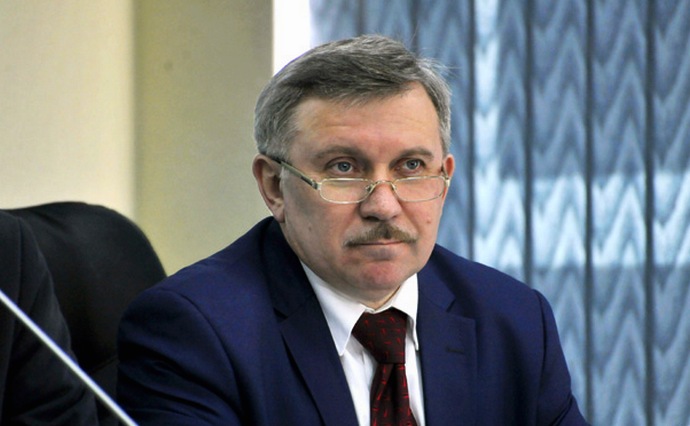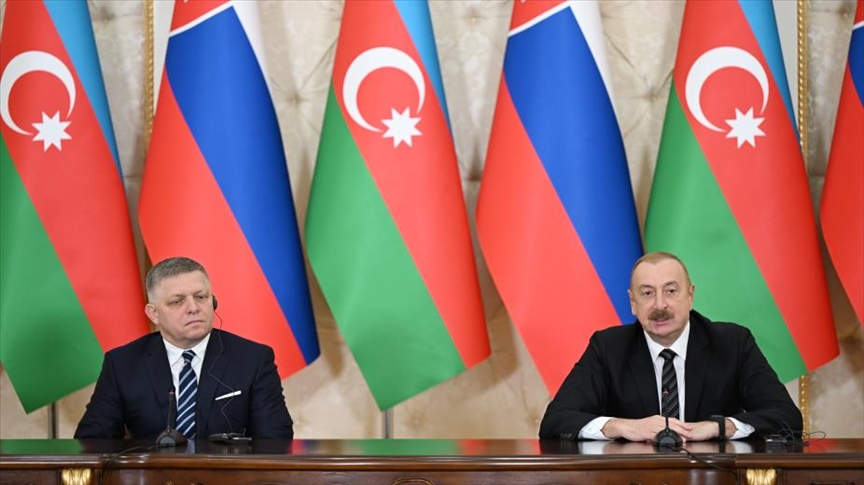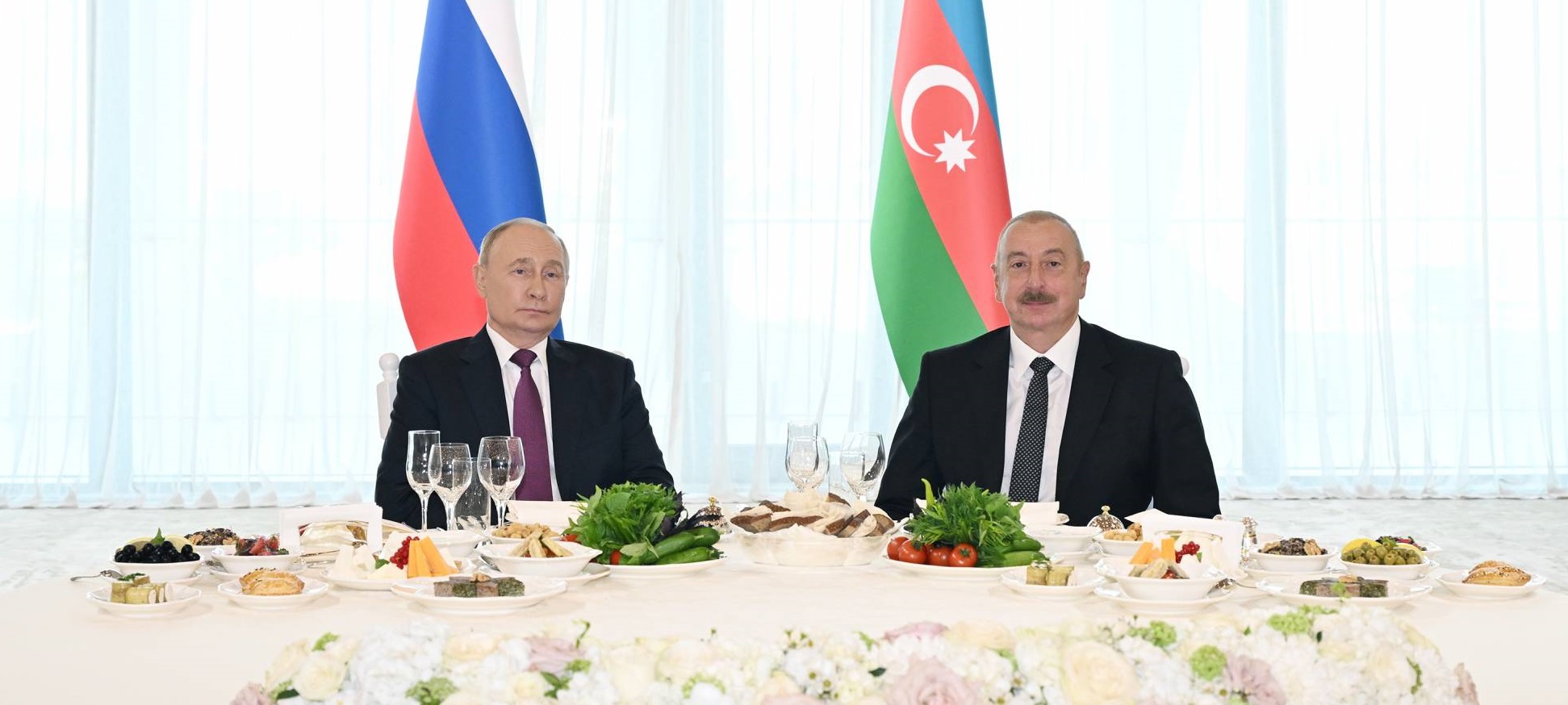As fighting continues in Russia’s Kursk Oblast, where the Ukrainian army is conducting an offensive, one might expect Vladimir Putin to stay in Moscow. Instead, the Russian president has paid a visit to Azerbaijan. Why now?
Putin, whose international travel is severely restricted by sanctions and an arrest warrant from the International Criminal Court, is likely seeking to show the world that he still enjoys diplomatic support. But the implications of the visit go deeper, with energy policy at the centre.
The gas problem is likely to be a key point in the negotiations. Following the invasion of Ukraine and the sanctions that followed, Russia has drastically reduced its gas exports to Europe, which has affected its revenues. In contrast, Azerbaijan has signed an agreement with the EU to increase its exports and thus position itself as an alternative supplier.
Another important aspect is the transit of Russian gas through Ukraine. The current contract expires at the end of 2024, and Kyiv is refusing to extend it and is considering alternatives – in particular, replacing Russian gas with Azerbaijani supplies for EU transit. Volodymyr Zelensky confirmed that this was “one of the proposals” being considered.
On the surface, this idea seems advantageous:
- Moscow lost significant revenues (over $10 billion during the two years of the all-out war)
- Ensuring a continuous gas supply to the EU
- Maintaining Ukraine’s transit revenues.
But Ukrainian energy expert Mykhailo Gonchar warns that this could be another Kremlin strategy. Euromaidan Press goes deeper and examines possible hidden intentions in this high-stakes energy chess game.
“Putin’s plan under Aliyev’s flag”
Putin and Azerbaijani President Aliyev are currently discussing a plan to continue the flow of Russian gas through Ukraine under the guise of “Azerbaijani” gas, believes Mykhailo Gonchar.
“Azerbaijan does not have that much free gas. Aliyev claims there is enough of it in the ground and they are extracting it. That’s true, but it is not available at the moment. Gazprom, on the other hand, has a lot of gas because they lost the European market.” Gonchar told Euromaidan Press:
Gazprom is facing financial difficulties and is looking for ways to improve its situation.
Having lost access to the EU market through a combination of sanctions and failed attempts to weaponize energy, Russia sought to redirect its exports to China. However, Moscow had a rude awakening: China, due to its diversified energy sources, found itself in a strong negotiating position and began demanding domestic, subsidized gas prices. This led to an indefinite delay in the construction of the Power of Siberia-2 pipeline, which was originally scheduled to start operating in 2024 but has now become unprofitable due to Beijing’s demands.
This indicates that Russia will try to return to the EU market, Gonchar believes.
Maintaining transit to Hungary, Slovakia and Austria – countries that still receive Russian gas via Ukraine – would be a strategic gain.
“This transit was previously considered a small gas flow that could be neglected. But now Putin is desperately looking for ways to return to the European gas market,” explains the expert.
The scheme is simple: an Azerbaijani company concludes contracts with these European countries. Unable to meet the demand on its own, Azerbaijan buys additional gas from Russia, thus declaring Russian gas for European consumption as Azerbaijani gas.
“I would call this Putin’s plot under Aliyev’s flag,” Gonchar summarizes.

Analysis of the Russian-Azerbaijani gas plan
In a column for the Ukrainian publication Dzerkalo Tyzhnya, Gonchar elaborates on the plan and explains that Moscow sees this gas plan as Creating Europe and Peace.
The “peacemaking” aspect lies in the negotiations on the transit of Russian gas through Ukraine, while the “European” aspect concerns the pro-Russian countries of Hungary and Slovakia. Crucially, the source of gas does not appear to be Russian.
Gonchar explains how the individual parts fit together:
- In June, there were “sudden” media reports about Azerbaijan’s willingness to increase its gas supplies to the EU.
- Putin and Aliyev likely discussed Azerbaijan’s cover-up of Russian gas supplies at their meeting with the Kremlin on April 22.
- On May 7, Slovak Prime Minister Robert Fico and Azerbaijani President Ilham Aliyev signed a declaration on strategic partnership in Baku and shared ambitious gas plans. Aliyev proposed increasing supplies from 8 to 12 billion cubic meters by 2024 and to 20 billion by 2027.
“The irony is that Azerbaijan does not have free gas resources, while Slovakia does not need as much gas and consumes only about 4.5 billion cubic meters annually. The real intention is clear, if unspoken,” Notes by Gonchar.

Both Hungary and Slovakia have stressed their dependence on Russian gas and oil. Viktor Orban’s appearance at the Organization of Turkic States forum on July 6 in Shusha, Azerbaijan, likely served this agenda.
This “Azerbaijani” gas program would not only support Gazprom, but also bring additional revenue to Russia’s war budget. For every dollar paid to Ukraine for transit, Gazprom could receive $10-15 in revenue, depending on market prices in the EU.
In reality, no Azerbaijani gas would flow through Russia. Instead, a paper trail would create the appearance of transit, and payments would go to a utility company, possibly registered in Switzerland or elsewhere in Europe.
“This payment for non-existent services essentially becomes a slush fund for the parties involved,” This is the expert’s conclusion.
What happens next?
As the plan progresses, Russia is expected to use different tactics to persuade Ukraine to accept it. Its propaganda efforts will target European and Ukrainian audiences with different messages.
In Europe they will stress the need for negotiations. In Ukraine they will promote two main arguments:
- The continuation of gas transit is intended to protect the gas transport infrastructure from Russian attacks.
Gonchar contradicts this claim: “Russia has repeatedly attacked underground gas storage facilities in the Lviv region, despite the transit agreement in place and Gazprom profiting from gas sales to Europe.”
- Stopping the transit would mean that several Ukrainian regions would be left without gas.
Gonchar refutes this too, citing historical evidence: “When Gazprom stopped deliveries to Ukraine and Europe in 2009, we changed the gas transport system. For two weeks in the depths of winter, Ukraine was dependent on domestic production and underground storage. There were no gas shortages in any region.”
****
As the 2024 deadline for the Russian Gas Transit Agreement draws ever closer, Ukraine faces an important decision. The complex interplay of gas diplomacy between Russia, Azerbaijan and Europe underscores the ongoing challenge of reducing dependence on Russian energy. Although there is no direct pipeline between Azerbaijan and Ukraine, a potential backup plan could allow Russian gas to be rebranded as Azerbaijani gas and exported to Europe.
As Ukraine weighs its options, the international community must remain vigilant about the long-term implications of apparent short-term benefits and ensure that efforts to diversify energy sources do not inadvertently increase Russian influence.
Read more:

